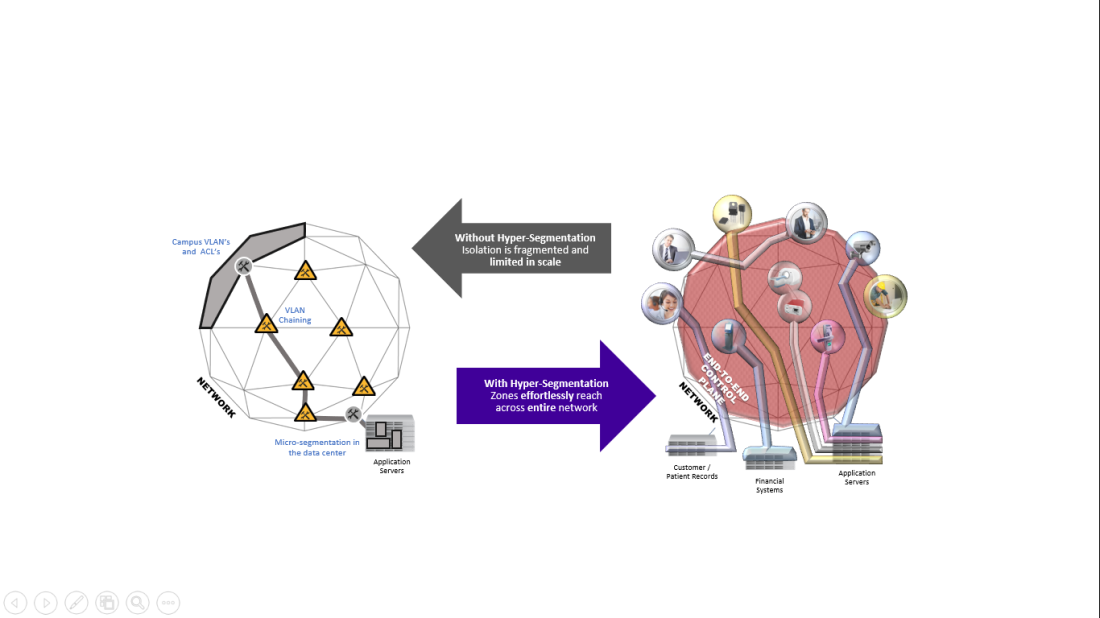BLOG - Network Automation, What Is it & Why Is it Important - By Samuel Brian
03-05-2020
Cloud, data and digital transformation are all buzz phrases thrown around in sales pitches and marketing materials alike with little discussion on a key piece of infrastructure needed to support them – the network. Networks are often overlooked and undervalued which is why I wanted to run through how network automation will not only aid transformation but can be the driving force for business success.
What is network automation?
Network automation is the term used to describe the process of automating the configuration, managing, testing, deploying, and operating of physical and virtual devices within a network.
Why is network automation important?
In today’s world there is an expectation that we do more with less, and nowhere is this more prevalent than in the networking industry. As more and more devices connect to the network, security is at the top of everyone’s agenda with 100% uptime required on less resources, budget and management time. It is these criteria that make network automation of the upmost importance for businesses today.
There are three critical areas to consider:
Operational efficiency
To achieve optimal operation efficiency within network automation there are four key factors to consider:
- Agility - whilst we don’t want to keep banging the COVID-19 drum, remaining agile is more important than ever for organisations to remain operational. Where customers have embraced networking automation, they have been able to rapidly spin up new services and new IoT devices in a matter of moments rather than the length process of configuring at every location.
- Simplify troubleshooting – how often do you call into the service desk saying “the network isn’t working, my application isn’t running properly” ? If this is a common complaint, try network automation tools to unlock true AI and ML. These automatically optimise network performance, self-remediation and provide real-time data on user, device, application and network response time.
- Uptime - Network automation has had a profound impact on the ability for the network to reconverge. Never drop out of a VoIP call with less than 50 milliseconds recovery time - network-wide - for core, link, or node failures.
- Cost - If time = money, then less time configuring, managing, testing, deploying, and operating equals cost saving for your organisation.
Security
Human error caused 90% of cyber data breaches in 2019, according to a CybSafe analysis of data from the UK Information Commissioner’s Office (ICO). According to their report, nine out of 10 reported cyber-breaches to the ICO last year were caused by mistakes made by end-users.
When I talk about security within an organisation, I liken it to an onion, due to it’s many layers. Historically it’s been about building a wall higher and simply having a yes/no approach. Today, however, we talk about introducing multiple security layers across your infrastructure as; “it’s not if, but when you get hacked” and how can you mitigate an attack. Automating your network firstly eliminates human error such as miss configurations.

Automation can be native within your hardware, look at switches that include:
Hyper-Segmentation - The ability to simply create thousands of secure zones that can extend end-to-end to completely isolate different traffic types, applications or types of users. If a breach occurs, it remains isolated within that segment, preventing potentially catastrophic lateral movements.

Inherent Stealth - Services are dynamically created with Ethernet Switched Paths. These paths are therefore not vulnerable to IP scanning/ hacking techniques - and ensure the end-to-end network topology remains hidden.
Elasticity - Services extend and retract dynamically eliminating potential back door entry points.

Team Morale
Whilst operational costs and security are important, we must not forget the human-side and workforce impact. When people hear “automation” they immediately think their jobs are at risk. Take the industrial revolution, this didn’t cost jobs, rather it marked a major turning point in history; almost every aspect of daily life was influenced in some way. In particular we saw increases in income, living standards and economic growth.
Automation allows you to get work done more efficiently, more accurately and at a lower cost. When employees are no longer doing the tedious work; it gives your employees the chance to focus on high-value projects while your automation software handles the manual tasks. When strategic projects become the focus of your team, they get a greater sense of satisfaction, your company becomes more competitive and in turn will grow.
If you are interested in understanding more about how we are helping organisations from NHS Trusts to large enterprises with network automation reach out - samuel.brian@netconnection.co.uk
